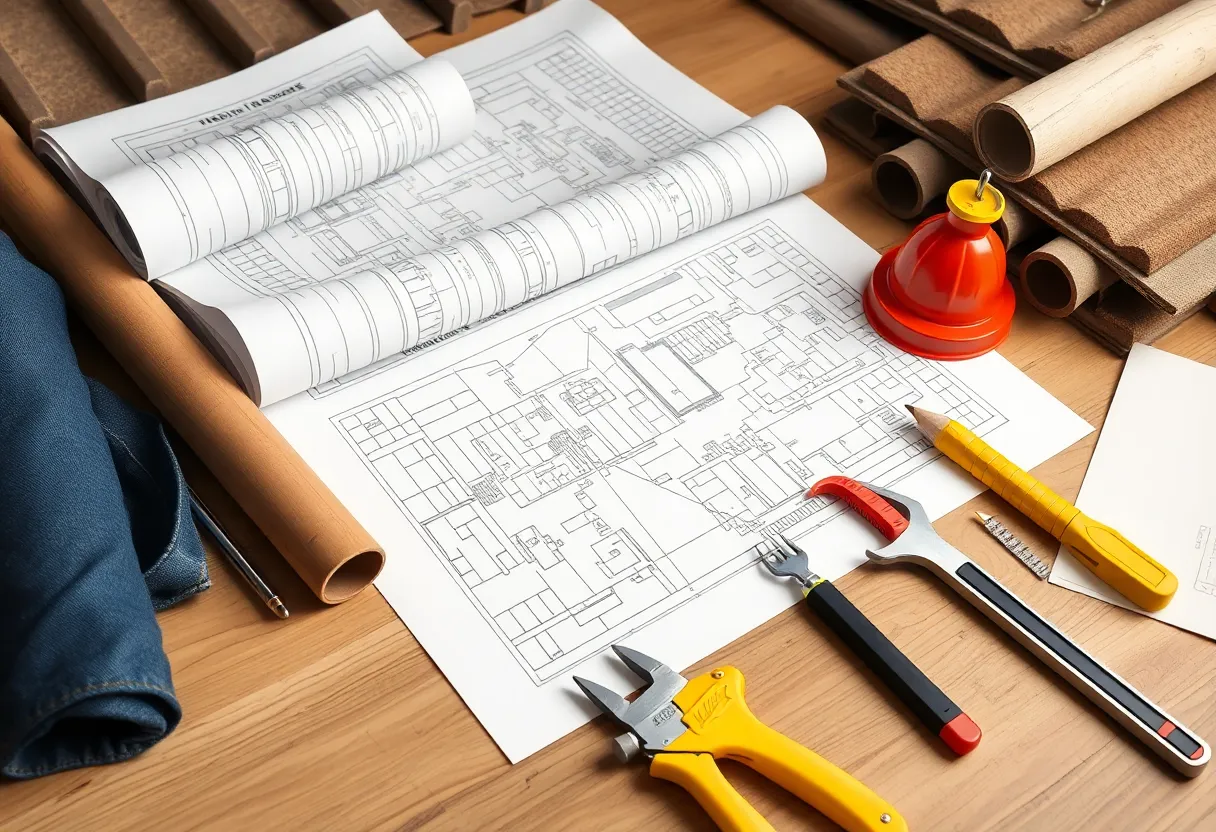How to Effectively Plan Your Roofing Project for Maximum Efficiency
Planning a roofing project involves a variety of factors that can impact its success. Efficient planning ensures that the project is completed on time, within budget, and meets the specific needs of your property. This article outlines critical steps to effectively manage your roofing project and achieve maximum efficiency.
1. Assess Your Needs
Conduct a Roof Inspection
Start by conducting a comprehensive inspection of your roof. Look for signs of wear, damage, or leaks. This will help determine if you need a complete replacement or can make repairs.
Set Clear Objectives
Identify what you want to achieve with your roofing project. Consider factors such as improving aesthetics, enhancing energy efficiency, or increasing property value. Setting clear objectives will guide your planning process.
2. Establish a Budget
Determine All Costs
Calculate all potential costs associated with the roofing project. This includes materials, labor, permits, and potential contingencies. Remember to include a buffer for unexpected expenses.
Prioritize Quality Over Cost
While it is tempting to opt for the cheapest option, investing in high-quality materials and skilled labor will yield better long-term results. Consider factors like durability and warranty when budgeting for your roofing project.
3. Choose the Right Materials
Assess Material Options
Research various roofing materials available in the market. Options like asphalt shingles, metal roofing, and tiles all have distinct advantages and drawbacks. Select materials that align with your objectives and budget.
Consider Energy Efficiency
Opt for materials that enhance energy efficiency. Energy-efficient roofing can help mitigate heating and cooling costs while increasing comfort in your home.
4. Hire the Right Contractor
Do Thorough Research
Finding a qualified contractor is crucial for your roofing project’s success. Seek recommendations, read online reviews, and check qualifications. A well-reviewed contractor will likely provide better service.
Request Multiple Quotes
Once you have a list of potential contractors, request quotes from each. Compare the estimates not just on price but also on included services, warranties, and timelines. This will help you make an informed decision.
5. Create a Detailed Timeline
Define Key Milestones
Develop a detailed timeline that outlines all phases of the roofing project. Include timeframes for materials procurement, labor, inspections, and clean-up. Having clear milestones allows for easier tracking of progress.
Account for Weather Conditions
Consider weather patterns in your area. Rain or snowfall can delay roofing work. Ensure your timeline allows for potential weather-related interruptions, so you’re not caught off guard.
6. Secure Necessary Permits
Understand Local Regulations
Before starting your roofing project, ensure you understand the local regulations regarding roofing. Many regions require permits for major roofing projects to ensure compliance with safety and zoning laws.
Obtain Required Documentation
After understanding the requirements, gather all necessary documentation needed to obtain permits. This includes building plans, specifications, and contractor information. Timely filing can prevent delays in your project commencement.
7. Communicate with Stakeholders
Maintain Open Lines of Communication
Establish a communication plan with your contractor, suppliers, and any other stakeholders involved. Regular updates will keep everyone informed and help address issues before they escalate.
Schedule Regular Check-ins
Set up regular check-ins throughout the project. This allows you to monitor progress and make adjustments as necessary. Continuous communication helps maintain efficiency and resolve any emerging issues promptly.
8. Plan for Disposal and Clean-up
Establish a Clean-up Strategy
Include a plan for waste disposal and clean-up in your project outline. A well-organized clean-up strategy will save time and enhance safety on the job site. Discuss disposal methods with your contractor.
Consider Recycling Materials
Explore options for recycling old roofing materials. Many municipalities offer recycling programs that can help reduce landfill waste while also potentially saving on disposal costs.
9. Prepare Your Property
Clear Surrounding Areas
Before work begins, clear the area around your home or building. Move vehicles, outdoor furniture, and garden equipment to ensure access for workers and equipment. This preparation prevents disruptions and potential damage.
Inform Neighbors
Notify your neighbors about your roofing project. This courtesy will keep them informed about potential noise and activity levels, helping to foster good relationships during the construction phase.
10. Review and Audit After Completion
Conduct a Final Inspection
Once the roofing project is completed, conduct a final inspection with your contractor. Ensure all work meets agreed-upon standards and that any warranties and guarantees are in place.
Collect Feedback
Gather feedback from all stakeholders involved in the project, including contractors and neighbors. This information can be invaluable for future projects, helping you improve your planning and execution.
Conclusion
Effective planning of your roofing project not only enhances efficiency but also ensures the final product meets your expectations. By assessing your needs, budgeting wisely, choosing the right materials, and maintaining open communication, you can navigate your roofing project with confidence. Taking these steps will lead to a successful roofing experience that protects your property for years to come.
Author: STAFF HERE NEWBERRY
The NEWBERRY STAFF WRITER represents the experienced team at HERENewberry.com, your go-to source for actionable local news and information in Newberry, Newberry County, and beyond. Specializing in "news you can use," we cover essential topics like product reviews for personal and business needs, local business directories, politics, real estate trends, neighborhood insights, and state news affecting the area—with deep expertise drawn from years of dedicated reporting and strong community input, including local press releases and business updates. We deliver top reporting on high-value events such as the Newberry Opera House performances, Newberry Arts Fest, and the Newberry County Fair. Our coverage extends to key organizations like the Newberry County Chamber of Commerce and the Newberry Museum, plus leading businesses in manufacturing and agriculture that power the local economy such as Amick Farms and Newberry Mills. As part of the broader HERE network, including HEREAiken.com, HEREBeaufort.com, HEREChapin.com, HERECharleston.com, HEREClinton.com, HEREColumbia.com, HEREGeorgetown.com, HEREGreenwood.com, HEREGreenville.com, HEREHiltonHead.com, HEREIrmo.com, HEREMyrtleBeach.com, HERENewberry.com, HERERockHill.com, and HERESpartanburg.com, we provide comprehensive, credible insights into South Carolina's dynamic landscape.




 Mays Contracting
Mays Contracting

